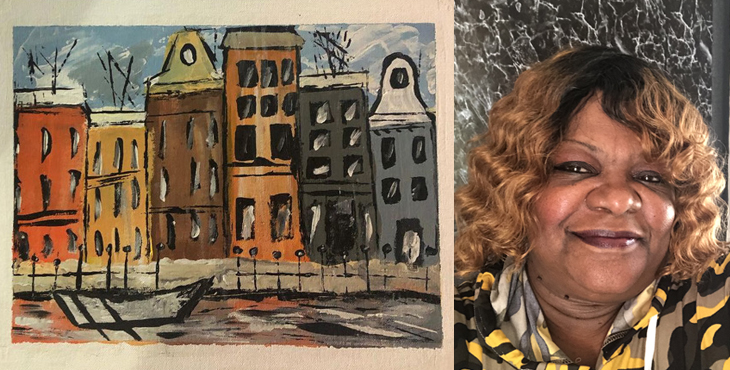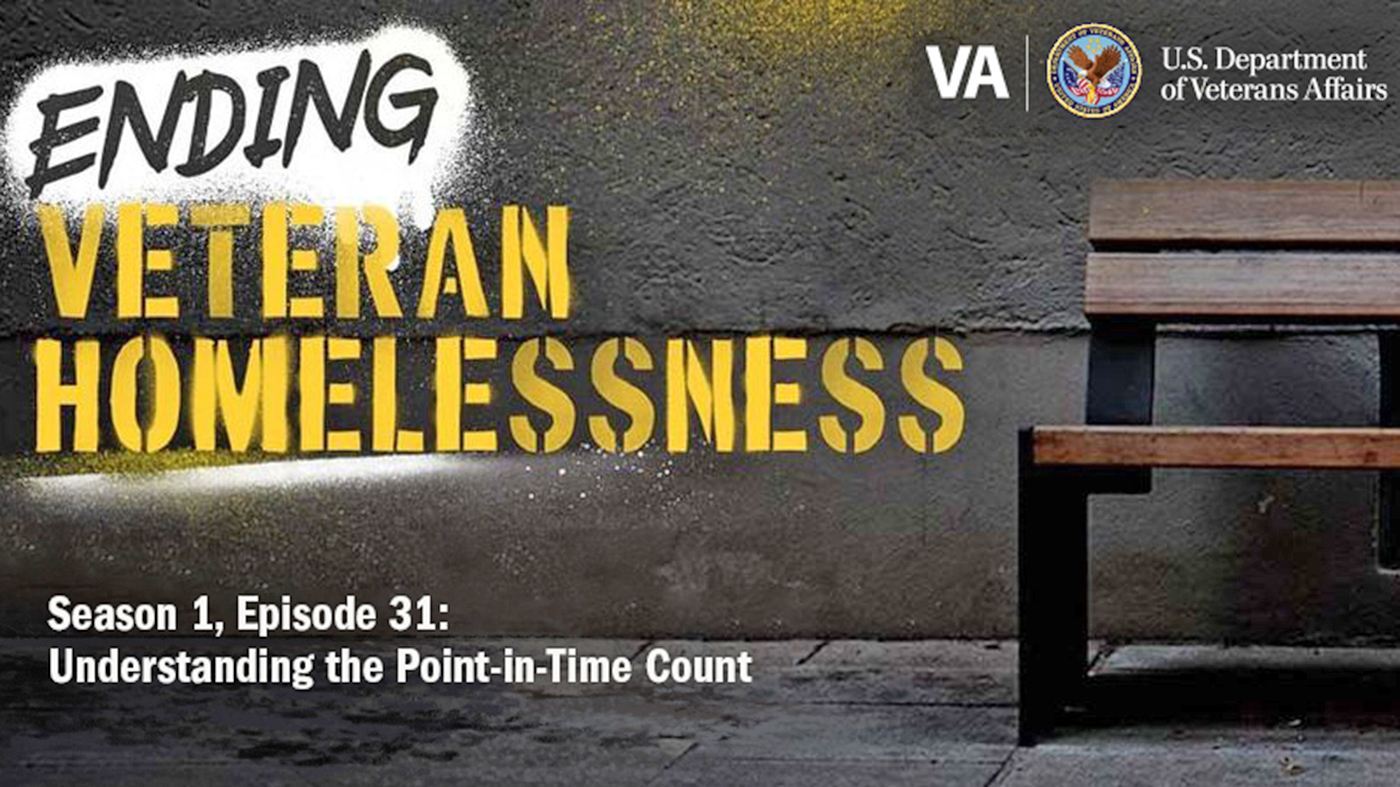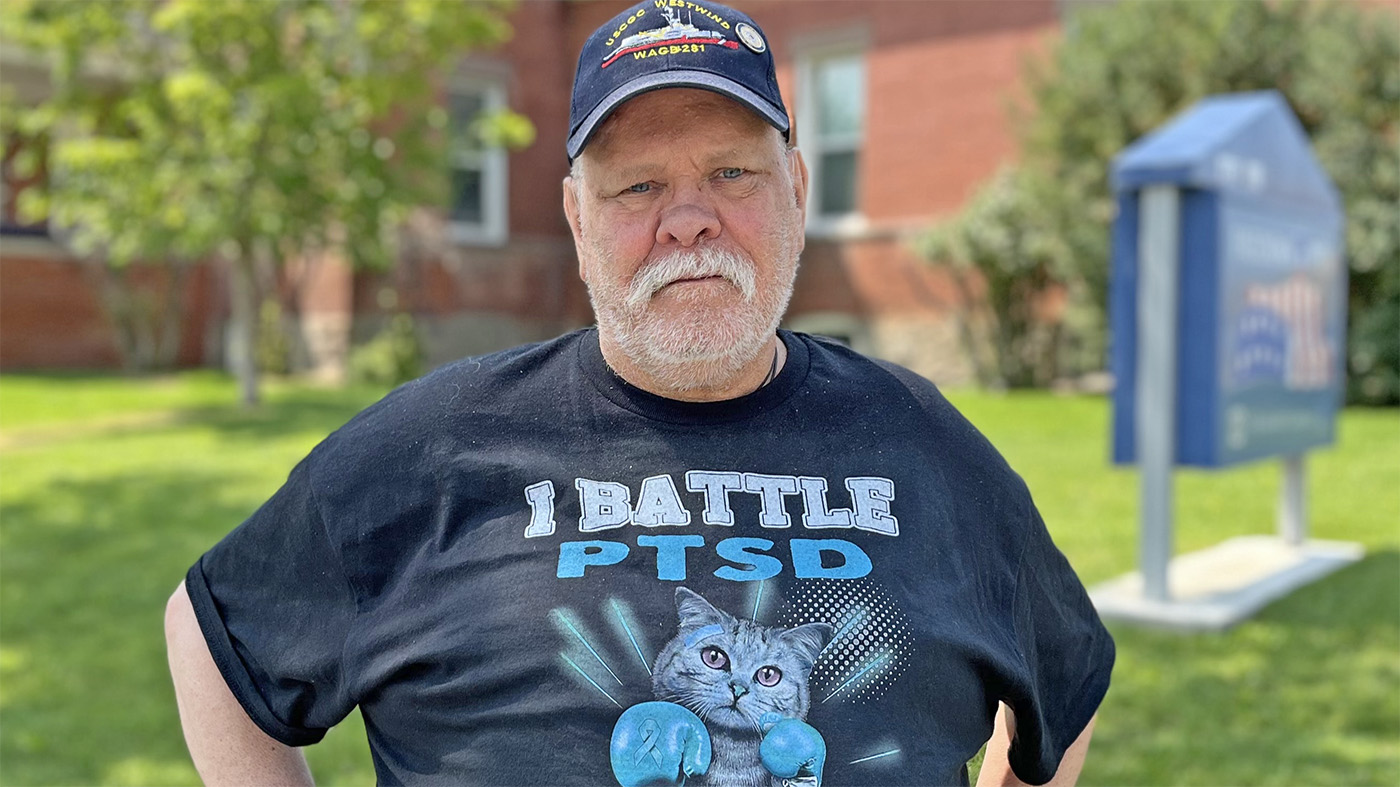Believe it or not, many women Veterans do not self-identify as Veterans. According to Dr. Laura Miller, psychiatrist and medical director of reproductive mental health for the Veterans Health Administration, this is due in part to the misconception that if women did not engage in combat, they are not considered Veterans.
“Some women Veterans may be unaware of their eligibility for benefits or be hesitant to approach VA for care,” said Dr. Ann Elizabeth Montgomery, investigator with VA’s National Center on Homelessness among Veterans. “But women Veterans are eligible for the same VA programs and services as male Veterans, given that they meet other eligibility requirements.”
Army Veteran Loretta White didn’t know she was eligible for VA benefits. She left the military in 1989 because of a domestic violence situation. After 10 years in the Army, she felt completely isolated from the civilian world and did not know where to go or who to talk to. Confused and scared, White decided to write a book, “My Sylent Screams,” to convey what she was going through.
Soon after, White moved to Colorado with her two children, but the effects of the domestic violence she had experienced left her unable to concentrate and maintain employment, and she became homeless.
“My journey to recovery first began when I attended a Stand Down event where I was told I was a Veteran,” said White. “I was unaware of this event, which is huge for Veterans, especially if you are homeless.”
Finding assistance through HUD-VASH
In 2010, White relocated to Orlando, Florida, but continued to live in homeless shelters. Eventually, in response to urging from a local civilian, she decided to call VA for assistance.
She was connected with a VA social worker who advised and helped her enroll in the Housing and Urban Development-VA Supportive Housing (HUD-VASH) program, which helps Veterans and their families who are homeless find and sustain permanent housing. White took his advice and entered the program.
“Throughout that year, every single social worker that I had treated me like family,” said White. “It wasn’t just me either. I talked to the other Veterans and they felt exactly the same. It was the best program I’ve ever been in.”
Healing and recovery through artwork
As a means of healing, White began creating art in 2015. She uses objects that she has on hand, including boxes, bottles, and egg cartons. She soon discovered the therapeutic power of art and its ability to bring people together.
“What has been found in women Veterans who have experienced trauma is a link with housing instability and the need to build resilience,” said Miller, the VHA psychiatrist. “This may include remaining socially connected, engaging in a larger community, and feeling a sense of purpose in life.”
After realizing her creative potential, White moved to North Carolina. She wants to help other Veterans by creating an art community where people could share their creations.
“I always wanted to own an art gallery, but this isn’t just art — it’s a way of healing,” said White. “A lot of people donated stuff to me because they knew I was a Veteran and how I wanted to help other Veterans.”
Looking to the future
White is aiming to open her own art studio for Veterans to display their artwork without the pressure of competition. She is also looking for her first home to own, and she has written and published 20 books.
“I want people to see the journey I went through,” said White. “After going through so much hurt and pain, to be overwhelmed with love … it’s hard to explain it.”
March is Women’s History Month and National Social Worker Month. Join VA and the Center for Women Veterans on March 31 at 2 p.m. ET for a Facebook Live event to learn about the unique needs of women Veterans and how VA can address them.
More Information
- Women Veterans looking for more information about relevant VA benefits and services should call the Women Veterans Call Center at (855-829-6636).
- Learn about the HUD-VASH program and enrollment eligibility at va.gov/homeless/hud-vash.
- Visit VA’s Veterans Experiencing Homelessness website to learn about employment initiatives and other programs for women Veterans exiting homelessness.
- Veterans who are homeless or at risk of homelessness should contact the National Call Center for Homeless Veterans at 877-4AID-VET (877-424-3838).
- For regular updates and stories like this, subscribe to receive the Homeless Programs Office monthly newsletter.
Heather Monroe, LCSW is a Community Engagement Detail Representative with the VHA Homeless Programs Office.
Topics in this story
More Stories
William Snow, senior program specialist at HUD, explains how the Point-in-Time Count provides valuable data on Veteran homelessness.
VA permanently housed 47,925 homeless Veterans in fiscal year 2024, exceeding its goals for the third year in a row.
VA Housing First changed the life of Grady Kendall, Coast Guard Veteran, because it was there when life knocked him down.







You beautiful Sisters of mine, I truly appreciate the love and your stories. As long as we have a place to come and express ourselves and know that we will not be judged makes all the difference in this world. Many many times I thought suicide was my only option but my children as well as the VA Mental Health program helped me with reaching out to the HUDVASH program which gave me hope until I received my 100%. I fought for 10 years after being diagnosed. Now my life has changed drastically. I went from Homeless to now about to close on my new home in West Palm Beach Florida. It’s truly changed my life so sisters hang in there and let’s keep lifting one another up. Love you.
I’m so sorry that you’ve had to go through all that!!! Parts of your life I can honestly say, I also know how it feels when the VA leaves us out in the world with PTSD from combat, mst, both or the many other mental health issues. Meanwhile our lives fall apart because we can’t be in a relationship with all these issues and if you’re like me, I was in Desert Storm, this year is the 30th anniversary. I have combat and mst ptsd and I’m still filing claims and fighting for my benefits, they denied me me and didn’t even send me for a C&P.. You hang in there. You aren’t alone, there are lots of us.
I left the Marine Corps in 1981 after just two years of service. I left with an Honorable Discharge under Honorable Conditions. My DD-214 has “Borderline Personality Disorder” on it and that I was not suitable for reenlistment. It also says somewhere that I was unable to adjust to military life. I carried this label and humiliation for decades. I suffered depression, failed marriages, attempted suicide, hospitalizations and a long, unstable work history. My ex-husbands, and children suffered.
A few years ago I was arrested for assault. When filling out a request for a court-appointed attorney, I checked a box that was for veterans. That check-box opened a whole new world for me. A court advocate was sent by the VA to every court appearance I made. Through sharing my story with her while waiting to be called into the courtroom each time, she told me that she would like to assist me in getting set up with VA services which eventually lead to applying for and receiving disability.
You see, unbeknownst to me, I was suffering from PTSD due to Military Sexual Trauma. Why veterans aren’t given retroactive disability to the time they became disabled I just don’t think is morally acceptable. What I lost all those years can never have a price put on it. But had it not been for an arrest, in which the charge was eventually dropped, I could very well be homeless at this point.
When I left the service at age 20, I never told anyone I was a veteran. I rarely do now. The Marine Corps damn near destroyed me. My hopes for a career were destroyed. Two marriages were destroyed. Every job I ever had ended in disaster. Even the mention of being a veteran brings about questions that I’m not comfortable answering. To this day, even after counselling, a correct diagnosis and medication, I am more comfortable isolating than risking being found out for what really goes on in my head. People don’t want to hear that.
This year I will be 60 years old. While I am very blessed to have great kids and several grandkids, they all live halfway across the country and I don’t see them a whole lot. Most days I just spend being grateful for the blessings I have while thinking that I’m really tired and worn out. I’m ready for it to end any time now.
Hi Shelly- I read your letter you wrote as if you were talking to me. Some things were different but then some so much the same as your experiences. I joined the service- the Navy (B40-41-88W) expecting a long and exciting career. I was in the service for 6 months and 25 days. About a quarter of what I signed up for. I was given an Honorable Discharge which I believe displayed that I did some if not all of the work assigned to me and did it well. I heard someone recently say “to get an Honorable Discharge at that time all she had to be was pregnant.” Yes, I was pregnant. As soon as people know you are a Veteran they start asking questions. One person I actually thought I had put-off said she could find out that information at another place. Fear that my personal information becomes public again and the PTSD and MST, these would also become public again.
The reason I’m writing in response to Shelly’s letter are to let her know that there must be thousands of us out there. Thousands who are alone with diagnoses. These feelings go on and stay your life time. I have dealt with them for 56 years. I will be 74-a young 74-in May. Yes, when you find the VA, they can give us so much help and we are so grateful for that help they give.
Recently a young man asked me how much time I spend in the military. I looked him him in the eye and said 6 months and 25 days. Surprisingly he said to me, “Congratulations, you served a lot longer than me. I didn’t serve any” while slightly ducking his head.